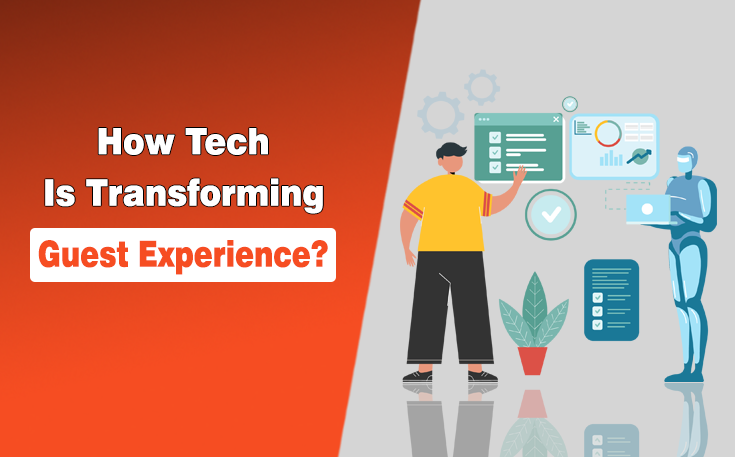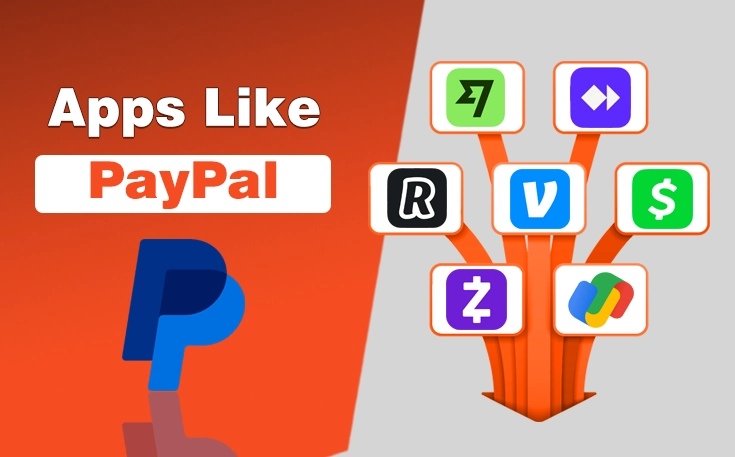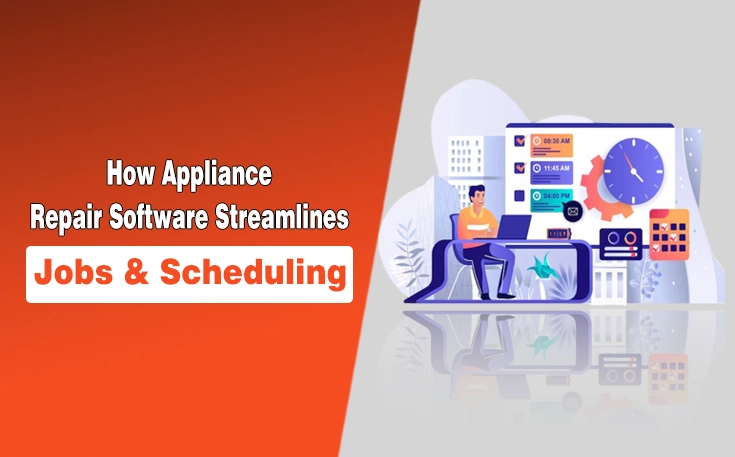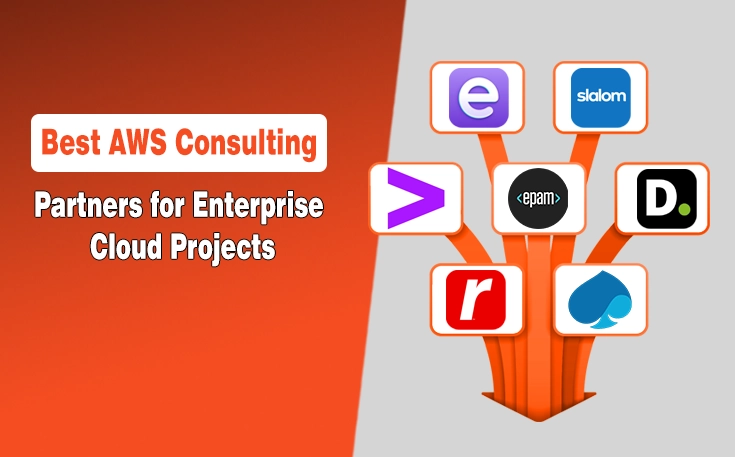In the fast-paced world of hospitality, every second counts. Restaurants that once relied on handwritten notes, ringing phones, and spreadsheets to handle reservations are realizing just how unsustainable manual systems can be. The industry has evolved, and so have customer expectations.
Guests no longer want to wait for confirmation calls or risk arriving to find their booking misplaced. They demand precision, personalization, and seamless experiences, and restaurant tech is answering that call.
In this blog post, I have described how technology is transforming the guest experience and has ended the reservation chaos.
How Tech Is Transforming the Guest Experience?
The transition from chaos to clarity is being powered by digital innovation. From artificial intelligence to real-time booking integrations, technology has become the invisible hand that orchestrates order in a space once ruled by confusion. Among the leading innovations driving this transformation is Tableo’s smart reservation management software, a solution that empowers restaurants to manage bookings efficiently while creating better experiences for both staff and guests.
It automates routine tasks, collects valuable insights, and provides complete visibility. Hence, this kind of software marks the end of the manual era and the beginning of intelligent hospitality.
The Hidden Cost of Manual Bookings
Manual reservation systems may seem manageable for small restaurants or during slow seasons, but they hide a range of operational inefficiencies that accumulate over time.
Every phone call that isn’t answered, every double-booked table, and every illegible note written during a rush hour can lead to a missed opportunity. When reservations are handled manually, human error is not a question of “if” but “when.” These errors don’t just inconvenience customers. They chip away at a restaurant’s credibility and profitability.
Behind the scenes, the cost of inefficiency can be staggering. Staff must constantly juggle between tasks, switching from note-taking to managing walk-ins, often at the expense of service quality. When bookings aren’t centralized, managers waste precious time cross-checking availability across platforms.
For restaurants operating at high capacity, these inefficiencies translate directly into lost revenue and customer frustration. The ripple effect can be severe: a delayed seating here, a disappointed guest there, and soon enough, an online review that impacts reputation for months.
“In hospitality, chaos isn’t caused by guests. It’s caused by outdated systems that can’t keep up with modern expectations.”
This truth defines the hospitality sector today. Restaurants that cling to manual systems inevitably fall behind, unable to adapt to an increasingly digital clientele. The solution lies in automation, the systems that don’t just handle bookings, but learn from them.
Technology introduces structure into the unpredictable nature of human dining habits, allowing businesses to forecast demand, prevent overbooking, and ensure every guest leaves with a positive impression. It’s not about replacing human touch. It is about enhancing it through efficiency.
How Restaurant Tech Is Solving the Chaos of Manual Bookings?
Technology has redefined how restaurants operate, providing clarity and control where there was once confusion. Instead of scribbled reservations and uncertain waitlists, managers now rely on data-driven systems that track availability, manage cancellations, and optimize seating arrangements in real time.
The introduction of advanced reservation platforms means no more guessing, no more missed calls, and no more double bookings. Further, the power of these tools lies in integration. With platforms like Tableo’s smart reservation management software, all booking information is centralized into one system. Whether a guest reserves through Google, the restaurant’s website, or a social media link, every entry is synced automatically.
It ensures that teams always operate with accurate information. The software even sends automated confirmations and reminders to guests, minimizing no-shows and allowing restaurants to plan ahead with confidence.
The transformation extends beyond operations. It enhances the guest experience. Today’s diners value transparency and convenience. They want to book in seconds, receive instant confirmation, and modify their reservations without calling the restaurant. Modern reservation software delivers precisely that.
When tech eliminates friction, guests feel more in control of their dining experience, and staff can dedicate more energy to hospitality rather than logistics.
Secondary benefits include:
- Reduced staff workload during peak hours
- Automatic tracking of guest preferences and visit history
- Insights that help restaurants tailor promotions to customer behavior
As a result, technology doesn’t just organize bookings. It creates the foundation for a smarter, more personalized hospitality culture.
How Technology is Streamlining Front-of-House Operations?
The adoption of digital reservation systems has a profound impact on front-of-house operations. Once plagued by uncertainty and constant communication breakdowns, restaurant teams now work with clarity and precision. Technology provides real-time visibility into table availability, reservation status, and guest flow. It not only helps reduce stress for staff but also enhances the sense of professionalism perceived by customers.
With digital seating charts and automated scheduling, hosts can instantly visualize the dining room’s status and assign tables accordingly. Managers can track turn times, forecast busy periods, and even adjust seating to accommodate larger parties. The difference is night and day: where confusion once reigned, coordination now drives the guest journey. Technology transforms the restaurant floor into a well-choreographed performance.
| Manual Reservation System | Technology-Driven System |
|---|---|
| Paper notes and phone logs | Centralized online dashboard |
| Unclear table assignments | Real-time seating visualization |
| Frequent communication errors | Instant updates across staff devices |
| Limited customer data | Integrated guest profiles and visit history |
| Reactive management style | Predictive insights and analytics |
The efficiency gained isn’t just operational. It is emotional. Staff morale improves when chaos is replaced with structure. Guests sense the confidence of a team that knows exactly what’s happening, and that trust becomes a defining factor of repeat visits. Tech doesn’t depersonalize hospitality. It enhances it by giving human interactions the structure they need to shine.
The Connection Between Technology and Guest Satisfaction
The link between technology and guest satisfaction is stronger than ever before. Modern diners live in a digital ecosystem, like booking hotels, ordering food, and reserving tables from their smartphones. They expect instant access, smooth experiences, and immediate feedback. Restaurants that embrace digital transformation are meeting these expectations head-on, while those that rely on outdated methods risk losing relevance in an increasingly tech-savvy market.
At the heart of guest satisfaction lies convenience. When customers can check availability, select preferred seating, or receive confirmation in seconds, their journey starts on a positive note. This first impression sets the tone for the entire dining experience.
Beyond convenience, technology allows for personalization at an unprecedented scale. A reservation system that tracks guest preferences, such as dietary restrictions or favorite table choices, creates opportunities to deliver thoughtful service. Guests feel recognized and valued, which leads to stronger emotional connections and repeat visits.
“True hospitality today is about anticipation, using data and technology not to replace warmth, but to deliver it more precisely.”
The ability to anticipate guest needs has become the ultimate competitive advantage. Platforms like Tableo’s smart reservation management software help restaurants collect and analyze guest data, enabling teams to craft experiences that feel effortless and tailored.
For example, a returning customer can be greeted by name, seated at their favorite spot, and offered the wine they enjoyed last time. These small yet powerful details transform a simple dinner into a memorable event.
Moreover, efficient technology also reduces the frustration points that guests often face: long wait times, miscommunication, or lost reservations. Managers can make real-time decisions that minimize delays by streamlining front-of-house communication. Guests spend less time waiting and more time enjoying their meals.
This balance of efficiency and empathy defines modern hospitality. It’s about creating harmony between digital innovation and the timeless art of service.
To summarize, the relationship between technology and satisfaction can be seen in three key outcomes:
- Frictionless experiences: Booking, confirming, and modifying reservations happens seamlessly.
- Personalized service: Technology captures guest data that empowers staff to deliver custom experiences.
- Enhanced communication: Instant updates keep everyone—staff and guests alike—informed and at ease.
The Future of Restaurant Management
The future of restaurant management will be shaped by technology that’s both smart and empathetic.
1. Automation
As AI and automation continue to evolve, systems will no longer just respond to bookings. They will predict them. Algorithms will anticipate peak dining hours, suggest optimal staffing schedules, and even identify loyal customers who haven’t visited in a while.
The result is a proactive management style that maximizes efficiency and profitability without compromising the guest experience.
2. Integrated Ecosystem
In the near future, restaurants may rely on integrated ecosystems that connect every aspect of operation, from reservations to inventory management to marketing campaigns. These systems will talk to one another, creating a 360-degree view of performance and customer behavior.
Decision-making will become data-driven, but the outcome will remain deeply human: guests will feel seen, understood, and cared for. The true beauty of this evolution lies in how technology amplifies empathy rather than replaces it.
3. AI and Machine Learning
Artificial intelligence will also play a pivotal role in optimizing dining room flow. AI tools can dynamically adjust table rotations to maximize occupancy by analyzing patterns in guest arrivals, seating duration, and order timing.
Managers will be able to predict demand surges and adapt pricing or promotions accordingly. What was once guesswork will become a science guided by real-time data.
| Aspect | Today’s Practice | Future Development |
|---|---|---|
| Reservation Management | Digital scheduling platforms | Predictive AI-driven booking optimization |
| Guest Insights | Manual data entry | Automated behavior analysis and trend forecasting |
| Staff Management | Static rosters | AI-generated shift planning based on demand |
| Marketing & Retention | Generic email campaigns | Personalized offers driven by guest analytics |
This data-rich future will redefine hospitality, not by removing the human element, but by enhancing it. The staff’s role will evolve from administrators to ambassadors, people empowered by data to create genuine human moments.
Restaurants that adopt early will enjoy not only smoother operations but also a more loyal clientele that appreciates the effortless flow of their dining experience.
Final Thoughts
The end of reservation chaos marks a defining moment in the evolution of hospitality. The transition from manual processes to intelligent, tech-driven systems isn’t just a matter of convenience. It is a revolution in service philosophy. Efficiency no longer comes at the cost of warmth; technology now supports it.
Restaurants that harness digital innovation can operate with clarity, precision, and confidence, turning daily operations into a symphony of seamless coordination. Solutions such as Tableo’s smart reservation management software embody this transformation by integrating automation with genuine hospitality.
The result is an industry that no longer reacts to problems but anticipates them. Guests feel more connected, staff feel more supported, and managers gain the insights they need to stay ahead.
Ultimately, technology has given hospitality what it always needed, time. Time to focus on people, on stories, on experiences. Because while the systems may be smarter, the heart of hospitality remains human.
Need custom app with amazing features?
Get a Quote




